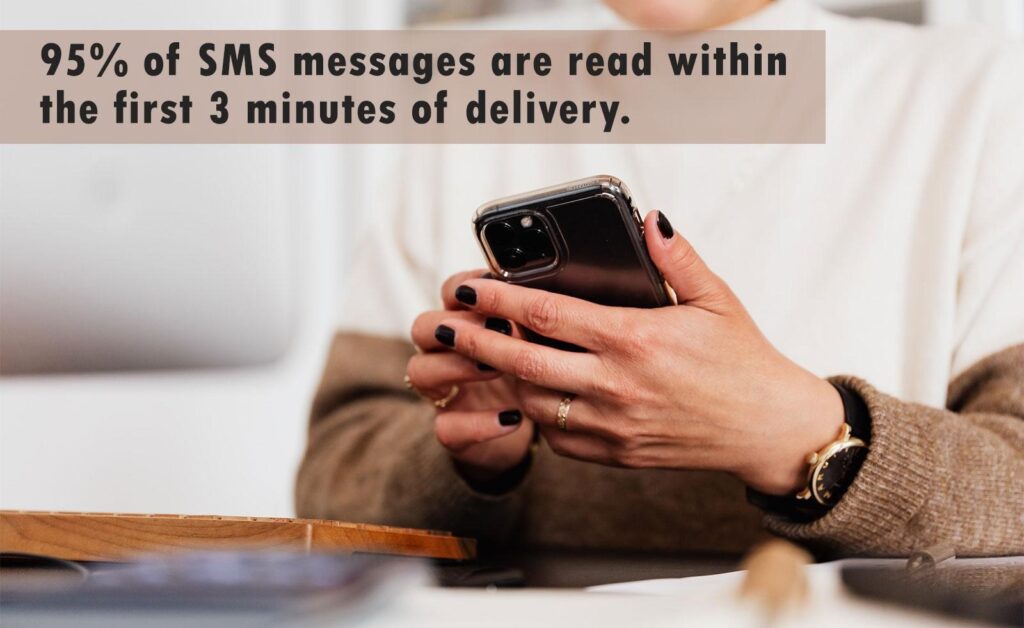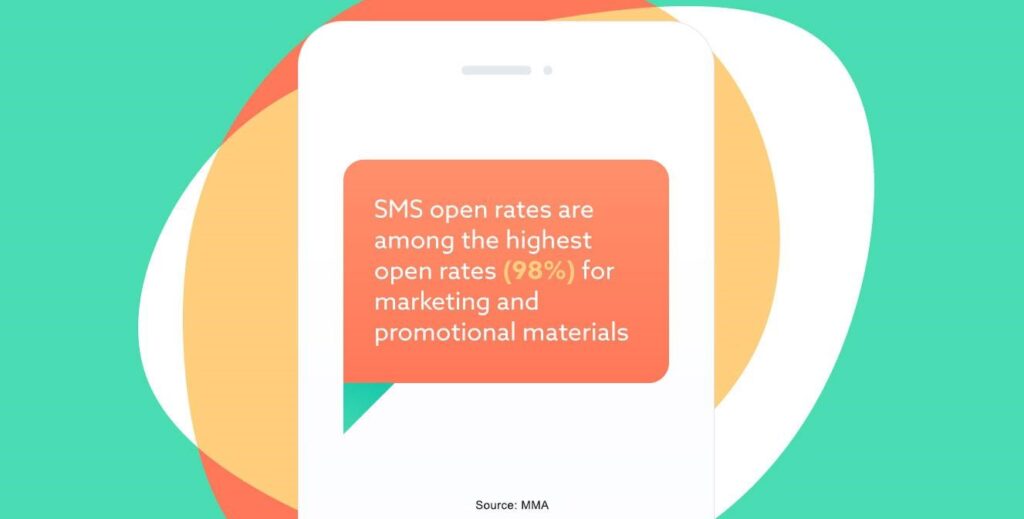Of all the channels available to businesses to run their digital marketing campaigns, one particular channel tends to be overlooked quite often: SMS or text messaging.
Indeed, most marketers tend to dismiss SMS as an unreliable marketing channel because of the belief that there is too much “regulation” in place. As a result, many have wrongly thought that SMS marketing strategy is too “complicated” and “unreliable”.
Reconsidering Text Message Marketing, and How You Can Make It Work Share on X
It also doesn’t help that SMS is seen as “passé” as there has been a shifting preference towards online communication and technologies chatbots and video which text message marketing is unable to handle. Thus, we see marketers focusing on channels such as email, social media platforms, or online messaging services like Facebook Messenger, WhatsApp, and Viber, while avoiding SMS altogether.
Is it right for marketers to ignore SMS marketing these days?

A Demise That’s Greatly Exaggerated
The truth is, this particular sentiment of marketers does not actually reflect the reality on the ground. Consider the following information:
1. Users: There are over 3.5 million smartphone users across the globe, not even counting those using feature phones. Chances are, each person in the world has at least one mobile phone at hand, providing greater chances for a business to reach a large audience as possible.
2. Frequency: At an average, users check their phones about 85 times a day, with a majority saying it is what they first do when they wake up. So there is very little chance that a user misses a new SMS, even if they seemingly ignore it the first time. Which leads to…

3. Timeliness: 95 percent of mobile phone users open their SMS inbox within the first three minutes that they receive notification of a new text message. So if your business is running a campaign that requires customers to act immediately, text message marketing is a viable way to go.
It’s clear from the data that SMS is still king not only in communication but also in reaching out to a large segment of the audience that any business would love to have in order to promote their product or service.
Is SMS That Bad for Marketing?
Now that we know that having an SMS marketing strategy is not a wasted effort, what do we make of the supposed problems of SMS? Does it really work bad as a marketing channel enough for any business to avoid?
Let’s look at some of SMS’ perceived drawbacks and figure out the real deal about them.
Tight regulations
The truth is, the supposed tight regulations in place for SMS are actually no different from the existing regulations already set for phone calls. That means as a marketer, you can pretty much do whatever marketing campaign or strategy you may have in mind using SMS.
Spamming however is another story. As with phone calls, the same regulations forbid anyone to send out spam text messages. While there is no agreed minimum number of text messages before they get flagged as spam, it’s advised to plan accordingly and spread out the times and recipients for bulk SMS messaging activities.

Character limits
It also must be said that many of those supposed disadvantages of SMS are now outdated thanks to advances in mobile communication. For instance, text messages can now go up to 1600 characters and long messages are less often being “chopped” into segments of 160 characters.
However, not all phones are capable of receiving messages of more than 160 characters, though they are a minority these days. Still, some marketers opt to err on the side of caution so the character limit is still consciously being adhered to.
One-sidedness
There is however one thing that might be seen as a real shortcoming of SMS: the one-sided nature of the channel. What this means is that if you as a marketer send an SMS to a prospective customer, you would have no way of knowing if your message was read. Worse, you won’t even have an idea if that person blocked your number on their phones as a result, which means you may no longer be able to send them additional text messages. This is especially true if you have no tools that will let you see such information.
Limitations of text
There is also the fact that SMS is still primarily a text-driven form of communication, which may not be as effective in this current environment where people are more invested to watch videos than read words. How can text messaging be an effective marketing tool to attract such an audience today?
The True Power of SMS

Yet, having noted the things that SMS lacks compared to other channels, they do not change the fact that SMS marketing is an effective marketing channel that every business must seriously consider alongside other channels like email and social media. And if we are to realize its potential as a marketing tool, it is important to keep in mind what makes it efficient in the first place:
- Swaying people with words – While it was pointed out here earlier that there is a tendency these days to lean more into audiovisual communication, that does not count out text communication as ineffective. It takes a matter of skill to find the right words and construct them in a way that can “trigger” your audience’s emotions and drive them into a desired action.
- Integration with other media and channels – In reality, an SMS marketing strategy does not compete against nor is it incompatible with other marketing channels. On the contrary, SMS marketing serves to complement other channels to ensure greater success.
For example, an SMS may direct your audience to your email newsletter that has a link to go to your landing page. Or if you haven’t completed a purchase at the online store, you get a text message reminding you of your purchase that you haven’t completed yet. What is important is that you build a seamless connection between all channels to ensure a positive user experience.
Best Practices for Effective SMS Marketing

Of course, it’s not enough that we understand how text message marketing works. We have to work hard in making it work by following some key best practices:
- Define the objectives of your SMS marketing campaign
Set realistic, achievable goals for your campaign. Also, make sure your plan takes into account all possible situations that may happen in the campaign and how you will address them.
- Determine your SMS marketing app service provider
Having an SMS marketing app service helps you manage your SMS marketing campaign. It can help you automate messages, provide data on your marketing campaigns, and, more importantly, manage your bulk SMS activities in a way that avoids falling into the spammer pit which would otherwise land you into big trouble.
Make sure that your chosen service is one that has a lot of positive reviews, easy to set up, and has great customer support that you can reliably contact anytime you run into trouble.
- Build your database
Determine the target audience of your campaign and make sure that you have their consent for you to send SMS marketing messages. For this, it is recommended that you create a sign-in page and ask your audience to go to that page and fill in their details.
When you have their details, it will now become part of your database where you will send messages related to your current and possible future campaigns. And if any one of your recipients no longer wants to receive messages from you, make sure it is easy for them to opt out.
- Make your messages concise and personal
One common mistake SMS marketers make is that they write messages that sound generic and almost robotic, which can be made worse with being conscious of those possible 160-character limits. Regardless of the character constraints, if any, it is important to keep the message simple and a bit more personal.
A good way of personalizing your message is addressing your audience by their first names, (something that is possible to do with an SMS marketing app that offers such a feature).. Offering exclusive deals or promos, especially to a certain part of your audience, is also a good marketing strategy.
- Measure your campaign’s success
Thanks to SMS marketing apps, you are now able to track the success of your campaign through available metrics, such as if a message is successfully sent or if a message has been read (which you would not be able to do without such special tools). This helps give a clearer picture whether your SMS marketing strategy works or if you need to change your strategy instead.
Final Words
In the midst of the constant developments being made in the fields of communication and marketing, SMS has always remained a vital channel in a successful digital marketing campaign for any business that knows how to tap its potential.
Even with the limits of SMS and the negative perception it has unfairly garnered in recent years, there is no reason to ignore SMS marketing as part of your overall marketing strategy. Especially in a competitive environment, it pays to have an effective SMS marketing campaign as part of your overall strategy, especially if you have the right tools and strategies in place in order to make it work.
Recommended Read:
10 SKILLS EVERY DIGITAL MARKETER NEEDS IN 2021
15+ MARKETING TOOLS & TIPS FOR AMAZON AFFILIATES
5 BEST ONLINE DIGITAL MARKETING COURSES IN 2021
General FAQs
SMS Marketing is sending promotional campaigns or transactional messages for marketing purposes using text messages (SMS). These messages are mostly meant to communicate time-sensitive offers, updates, and alerts to people who have consented to receive these messages from your business.
Research shows that SMS open rates are as high as 98%, compared to just 20% of all emails. And, on average, it takes 90 seconds for someone to respond to a text and 90 minutes to respond to an email.
The peak time for a business to send an SMS marketing campaign is between 12:00 and 15:00 both weekdays and at the weekend, with almost one-third of mobile opted-in users favouring this time. This time slot is closely followed by 09:00-12:00 during weekdays.




